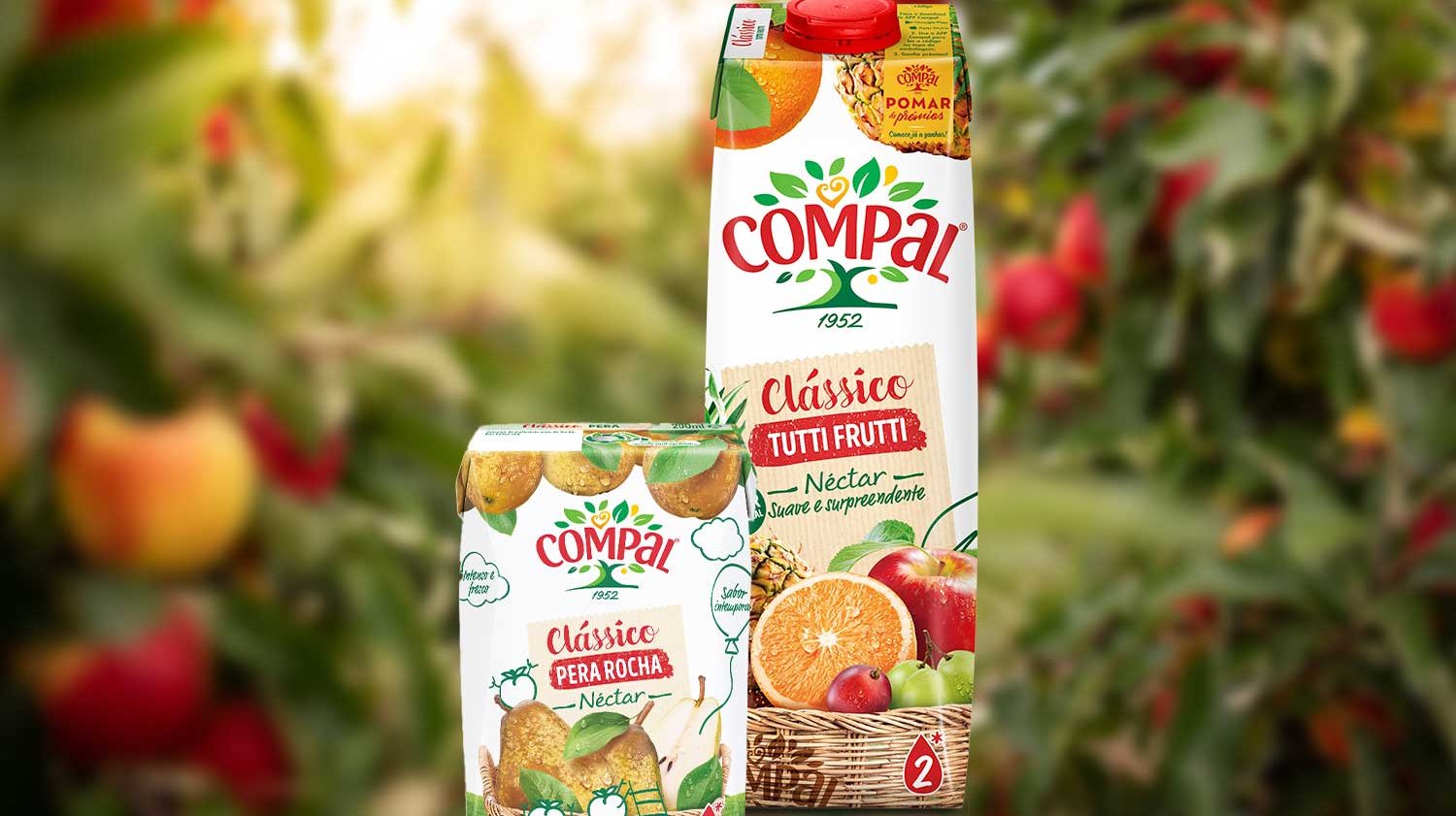This article is the responsibility of Compal.
Placing plastic in the yellow recycling container, glass in green or paper in blue is a simple gesture that contributes in many ways to a sustainable future. Recycling containers well ensures that they will not be randomly discarded in a landfill, therefore, they will not contaminate the planet. And it also allows us to reduce the need for new raw materials. But recycling is not enough. Because tomorrow matters, Compal actively works to have more environmentally friendly packaging in everything it produces, facilitating the maintenance of circularity and causing fewer CO2 emissions.
What is more environmentally friendly packaging?
We all have the duty to put a bottle of juice, a packet of nectar or a can of vegetables to good use. When we know the origin of these materials well, we are confident that the path we have taken to the recycling bin began a long time ago, even before the fruit was picked. Thinking about tomorrow, Compal, together with its partners, makes the choice of materials for its packaging (paper, glass, plastic and metal) an important part of the process, guaranteeing the reduction of carbon production.
These raw materials, recyclable and many already recycled, guarantee that innovation and quality are not only found in sustainable agriculture or in new products designed for an active and healthy life, but also in the certified packaging that protects them until they arrive. to our table.
How friendly is Compal’s packaging?
For more than 70 years, Compal has worked with tomorrow in mind and much of this commitment is visible in the certification of different packaging. All paper used in Compal packaging, for example, is certified by the FSC (Forest Stewardship Council), which guarantees that the card comes from wood from forests certified to FSC standards and other controlled sources. And in the multiple Tetra Pak containers used by Compal, paper is the most important component, more than 70% of the total.
Another certification comes from the Carbon Trust, which certifies the reduction of emissions (hundreds of tons of CO2 per year) thanks to the use of plant-based plastic in various packaging. The plastic lids are of completely vegetal origin: they are made with sugar cane certified by Bonsucro, with the Production Standard seal, the most recognized internationally. This standard guarantees the sustainability of the origin and transformation of sugar cane in parameters such as the emission of polluting gases, the use of water, biodiversity and the rights of workers and populations.
X-ray of Compal’s different recyclable packaging
- PET containers that are 14% lighter and whose production emits fewer CO2 emissions;
- Non-shedding lids for easy recycling;
- 100% FSC paper and plastic covers with Bonsucro certification;
- 7% lighter, 100% recyclable glass bottles and jars;
- Also recycled and infinitely recyclable steel cans;
- Pots and bottles made from 100% recycled plastic;
A good example of this concern for tomorrow is Compal Fresco, a juice that does not suffer any increase in temperature during its production, and which arrived in a container designed from the beginning to be produced from 100% recycled plastic.
Packaging: the importance of recycling for the environment
The recycling process depends a lot on our actions, whether when we drink a refreshing Compal juice or when we use a packet of tomato or bean pulp in our favorite recipe. Reducing the environmental impact involves keeping the circularity chain started by Compal in operation.
Certified by the international entities FSC, Carbon Trust or Bonsucro, Compal packaging reflects the objectives achieved with concern for natural resources, the reduction of carbon production and the continuity of the recycling process.
In addition, the Compal packaging also indicates the correct place to deposit it once empty, as well as the correct way to do so. This is a contribution that will surely be present in the millions of containers duly recycled each year in Portugal. For example, in 1998, Sociedade Ponto Verde collected 1,495 tons of glass, plastic, paper, metal and wood for recycling and, in 2023, more than 460,000 tons of those same materials. There is still a lot of room for improvement, since there was stagnation compared to the previous year.
This Compal initiative to promote correct recycling and the adoption of simple measures that bring benefits to the entire society has been going on for a long time and materialized in 2022 in the creation of the Recycling Academy. At the SUMOL+COMPAL unit in Almeirim, the visit to the different stages of production does not end without visiting the area where they teach what the circular economy is, its importance and how this concept is present in the most environmentally friendly packaging of Compal. .
Ponto Verde Society
Source: Observadora
